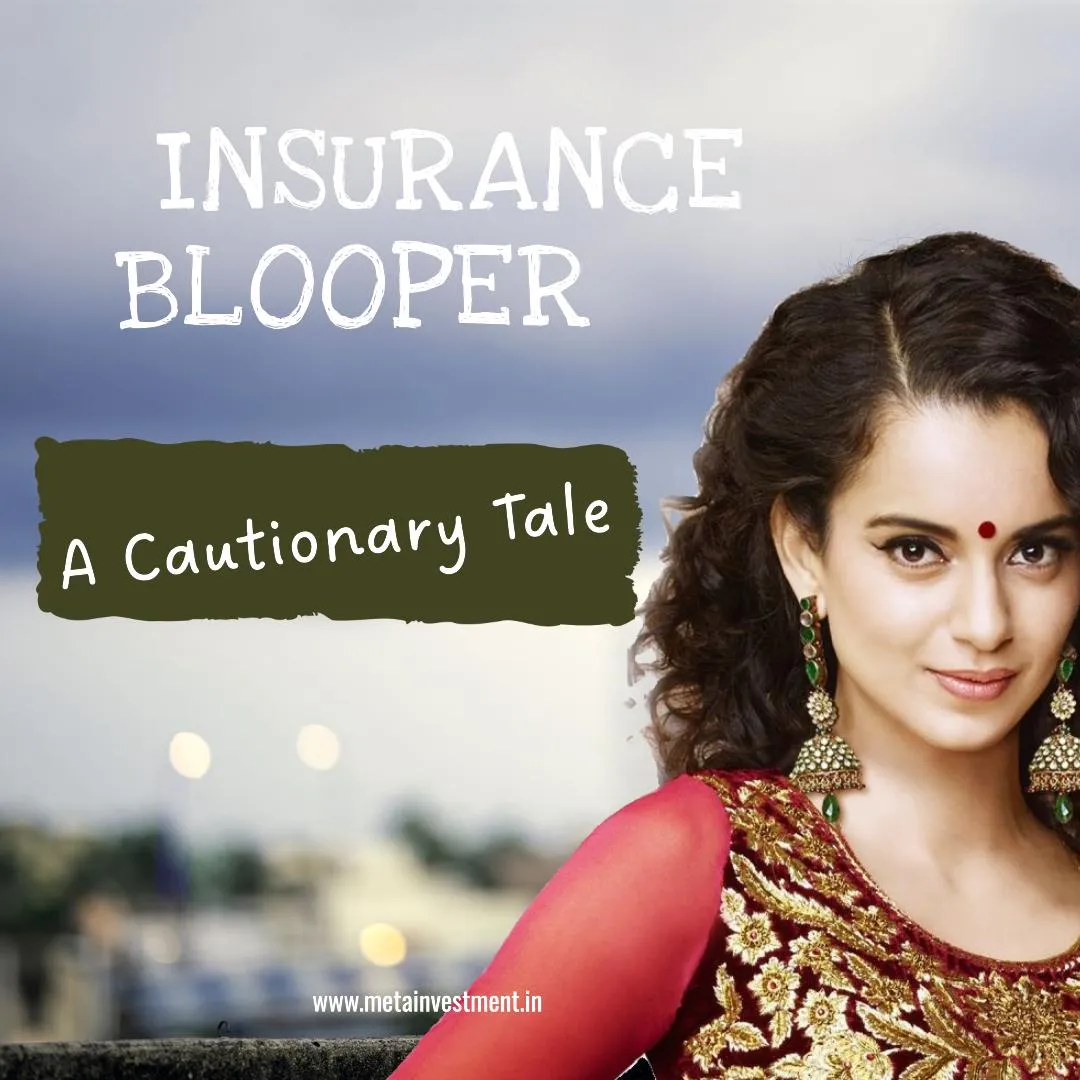Bollywood actress Kangana Ranaut has always been in the limelight, whether for her powerhouse performances or her candid opinions. Recently, she made headlines again, but this time it was for her unique approach to life insurance.

In her Lok Sabha 2024 election affidavit, Kangana declared she holds 50 life insurance policies, all purchased on the same date in 2008, each offering a coverage of ₹10 lakhs from same insurance provider. While the total coverage sums up to ₹5 crores, the actress has seems to have ceased premium payments for 48 out of 50 of these policies. This scenario presents a fascinating case study on the importance of strategic insurance planning.
The Initial Decision: Spreading Risk
At first glance, purchasing multiple insurance policies might seem like a strategy to diversify risk. By spreading coverage across several policies, an individual might believe they are better protected against future uncertainties. However, this approach has significant drawbacks. Managing multiple policies can lead to administrative burdens, higher cumulative premium payments, and potential lapses if premiums are not consistently paid.
The Coverage Conundrum
Kangana’s total coverage of ₹5 crores is substantial, indicating a solid initial intent to secure financial stability. However, the effectiveness of this coverage diminishes if the premiums are not maintained. As she has stopped paying premiums on 48 out of her 50 policies, the actual coverage is reduced from ₹5 crores to around ₹3 crores. This scenario highlights a crucial lesson: maintaining fewer policies with manageable premiums is often more effective than juggling multiple policies that can lapse.
Is it Insurance or Investment?
We’ve all heard the saying, “prepare for the worst, hope for the best.” That’s the core principle behind insurance. But many folks getting caught up in the idea of insurance as an investment vehicle. Let’s clear this up: while some insurance products offer an investment component, their primary purpose is financial protection, not high returns.
Why Insurance Matters:
Imagine this: you’re the financial rock of your family. Suddenly, you’re gone. Without proper insurance, your loved ones could face a financial crisis. Insurance acts as a safety net, providing a lump sum that can cover bills, living expenses, and even future needs like education. This financial security ensures your family can weather the storm.
Investing for Growth:
Now, let’s talk growth. To build wealth and achieve your long-term goals, you need dedicated investments. The stock market, mutual funds, bonds, gold, or even real estate (with careful planning) can offer the potential for significant returns. These options come with their own set of risks, but the focus is on growing your capital.
Here’s the takeaway:
Insurance = Protection: Protect your loved ones financially in case of an unfortunate event.
Investments = Growth: Grow your wealth to achieve your long-term goals.
Does Kangana really needs Insurance?
With a net worth exceeding ₹74 crore, a life insurance policy of just ₹5 crore might not be the most relevant tool to address your financial security needs. At this level of wealth, a more comprehensive estate planning strategy is likely required.
Optimal Insurance Strategy
For most individuals, a well-thought-out insurance plan should include:
-
Adequate Coverage: Ensure the total coverage aligns with financial responsibilities, such as family support, loans, and future financial goals.
-
Simplicity and Manageability: Opt for fewer policies that are easier to manage, ensuring consistent premium payments.
-
Long-Term Commitment: Choose policies with premiums that can be comfortably paid over the long term, preventing lapses.
-
Regular Reviews: Periodically review and adjust coverage based on changing life circumstances, such as marriage, children, or significant career changes.
Conclusion: Learning from Kangana’s Example
Kangana Ranaut’s insurance blooper serves as a cautionary tale. While the intent to secure a substantial financial safety net is commendable, the execution underscores the importance of strategic planning and sustainability. The key takeaway is clear: prioritize simplicity, manageability, and consistency in premium payments to ensure that insurance coverage remains intact and effective.
This case also highlights the value of consulting with financial advisors who can tailor insurance plans to individual needs, ensuring that policies serve their intended purpose without becoming a financial burden.
Remember, insurance is the foundation for financial security. Don’t get sold on investment-wrapped insurance as a replacement for a solid investment strategy. Let’s prioritize your family’s well-being first, then focus on building a brighter financial future together.













